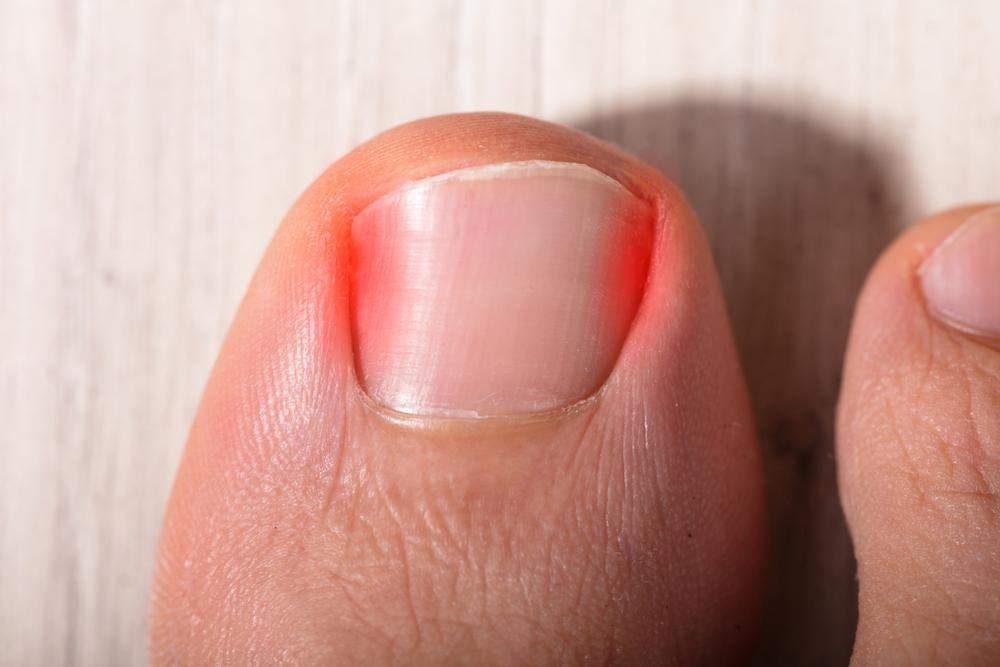
You may have heard that toenails should be trimmed straight across (as opposed to rounded) and that they should not be too short. Maintaining your toenails in this way will help avoid the toenail from growing into the skin surrounding it, which can lead to an ingrown toenail. Aside from improper toenail trimming, it is believed that wearing shoes that are too narrow in the toe box or are too short—causing your big toe to rub against the tip—can sometimes lead to an ingrown toenail. While an ingrown toenail may not cause any symptoms at first, in time it may become painful, red, swollen, and possibly infected. Pus may even collect under the nail and then drain. If you have an ingrown toenail, it is suggested that you seek the professional care of a podiatrist as soon as possible while treatment methods are typically more simple.
Ingrown toenails may initially present themselves as a minor discomfort, but they may progress into an infection in the skin without proper treatment. For more information about ingrown toenails, contact Dr. LeKeisha George from Forest Hills Podiatric Medical Care. Dr. George can provide the care you need to keep you pain-free and on your feet.
Ingrown Toenails
Ingrown toenails are caused when the corner or side of a toenail grows into the soft flesh surrounding it. They often result in redness, swelling, pain, and in some cases, infection. This condition typically affects the big toe and may recur if it is not treated properly.
Causes
- Improper toenail trimming
- Genetics
- Improper shoe fitting
- Injury from pedicures or nail picking
- Abnormal gait
- Poor hygiene
You are more likely to develop an ingrown toenail if you are obese, have diabetes, arthritis, or have any fungal infection in your nails. Additionally, people who have foot or toe deformities are at a higher risk of developing an ingrown toenail.
Symptoms
Some symptoms of ingrown toenails are redness, swelling, and pain. In rare cases, there may be a yellowish drainage coming from the nail.
Treatment
Ignoring an ingrown toenail can have serious complications. Infections of the nail border can progress to a deeper soft-tissue infection, which can then turn into a bone infection. You should always speak with your podiatrist if you suspect you have an ingrown toenail, especially if you have diabetes or poor circulation.
If you have any questions, please feel free to contact our office located in Forest Hills, NY. We offer the newest diagnostic and treatment technologies for all your foot care needs.